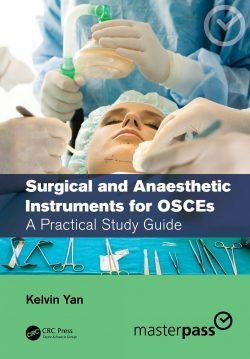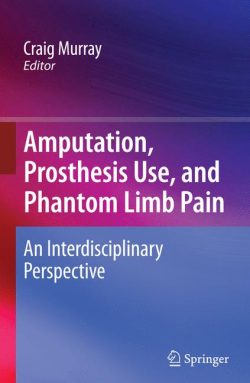This book covers all essential aspects of writing scientific research articles, presenting eighteen carefully selected titles that offer essential, “must-know” content on how to write high-quality articles. The book also addresses other, rarely discussed areas of scientific writing including dealing with rejected manuscripts, the reviewer’s perspective as to what they expect in a scientific article, plagiarism, copyright issues, and ethical standards in publishing scientific papers. Simplicity is the book’s hallmark, and it aims to provide an accessible, comprehensive and essential resource for those seeking guidance on how to publish their research work.
The importance of publishing research work cannot be overemphasized. However, a major limitation in publishing work in a scientific journal is the lack of information on or experience with scientific writing and publishing. Young faculty and trainees who are starting their research career are in need of a comprehensive guide that provides all essential components of scientific writing and aids them in getting their research work published.
Why write a scientific research paper.- Components and structure of a scientific paper.- Title, title page, covering letter.-Abstract and key words.- Introduction.- Methods.- Results.- Discussion and conclusion.-References.- Figures/Tables/ Supporting materials and annexure.- Choosing a journal for paper submission and methods of submission.- Revision of an article and how to deal with the rejected manuscript.- Authorship and Contributorship.- Types of manuscripts.- What does a reviewer look into a manuscript.- Open Access for publication – can it be chosen?.- Plagiarism and permissions.- Ethics of research publication. “This is a step-by-step guide to writing a scientific paper. Each chapter covers one element of the research paper, including how to prepare it and how and where to submit it. … This is a useful addition to the library of any trainee or young faculty member. It is a great resource even for more seasoned investigators. It is well written, entertaining, and a good guide to scientific publication.” (Christine S. Moravec, Doody’s Book Reviews, December, 2017)
Subhash Chandra Parija is the Director of the Jawaharlal Institute of Postgraduate Medical Education & Research (JIPMER), Pondicherry, India, and has nearly three and half decades of teaching and research experience in Medical Microbiology. Prof. Parija is a Food and Agriculture Organization (FAO) expert, and has been consulted to draft guidelines on food safety for parasites. Prof. Parija was on the Board of MD Examination at Colombo University, Sri Lanka, Sultan Quaboos University, Oman, University of Malaya, Malaysia. He was conferred a D.Sc. for his contributions in the field of Medical Parasitology by Madras University. The author of ten books including the “Text Book of Medical Parasitology,” he has published more than 300 papers in both national and international journals of repute.
Prof. Parija has been honored with more than 25 awards including the Medical Council of India’s Dr. BC Roy National Award and the National Academy of Medical Sciences’ Dr. PN Chuttani Oration Award. Prof. Parija founded the Indian Academy of Tropical Parasitology (IATP), the only professional organization of Medical Parasitologists in India, and initiated the journal Tropical Parasitology.
Vikram Kate is currently the Professor and Head, Department of the Surgery and Senior Consultant General and Gastrointestinal Surgeon at Jawaharlal Institute of Postgraduate Medical Education & Research (JIPMER), Puducherry. He has contributed more than 25 chapters in reputed surgical gastroenterology and surgery textbooks, and has more than 140 papers to his credit. He is a Past President of the Indian Association of Surgical Gastroenterology. He was awarded the Membership Diploma of the Faculty of Surgical Trainers by the Royal College of Surgeons, Edinburgh. Further, he currently serves as the Editor-in-Chief of The International Journal of Advanced Medical and Health Research, the official journal of JIPMER.
Professor Kate is Examiner for the M.S./M.Ch./DNB and Ph.D. program for Surgery, Surgical Gastroenterology and Intercollegiate Membership of the Royal College of Surgeons, Edinburgh. He is a Fellow of Royal College of Surgeons of England, Edinburgh and Glasgow (FRCS, FRCS Ed., FRCS Glasg.), and of the American College of Surgeons (FACS) and the American College of Gastroenterology (FACG). He has been honored with many awards, including the Dr. Mathias Oration (2010), the Prof. N. Rangabashyam Oration (2015), by the Tamil Nadu and Pondicherry Chapter of the Association of Surgeons of India and the Silver Jubilee MASICON Oration (2016) by the Nagpur Branch of the Association of Surgeons of India.
This book covers all essential aspects of writing scientific research articles, presenting eighteen carefully selected titles that offer essential, “must-know” content on how to write high-quality articles. The book also addresses other, rarely discussed areas of scientific writing including dealing with rejected manuscripts, the reviewer’s perspective as to what they expect in a scientific article, plagiarism, copyright issues, and ethical standards in publishing scientific papers. Simplicity is the book’s hallmark, and it aims to provide an accessible, comprehensive and essential resource for those seeking guidance on how to publish their research work.
The importance of publishing research work cannot be overemphasized. However, a major limitation in publishing work in a scientific journal is the lack of information on or experience with scientific writing and publishing. Young faculty and trainees who are starting their research career are in need of a comprehensive guide that provides all essential components of scientific writing and aids them in getting their research work published.
Chapters are easy to understand with essential contents for writing quality scientific research paper and easy to follow algorithms and key points in each chapter
Chapters highlight the importance of each section of the scientific article
A comprehensive book which will focus on how to deal with rejected manuscripts, issues of plagiarism and ethical principles of scientific publications





